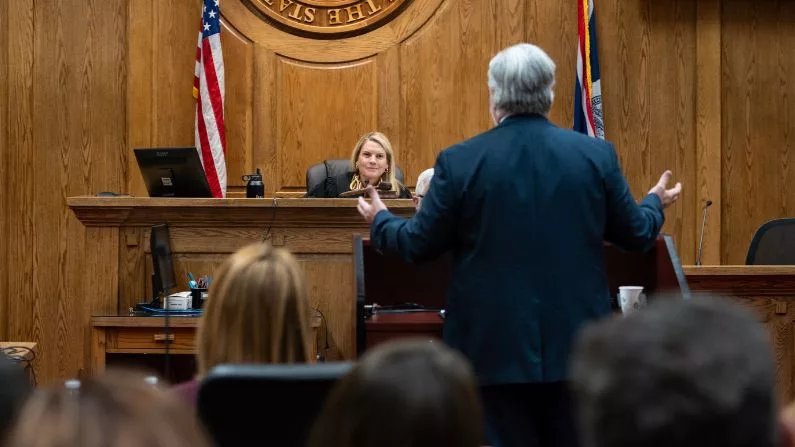A Teton County judge heard four hours of arguments on Thursday in the state’s ongoing legal battle over abortion access.
But Wyoming Ninth District Court Judge Melissa Owens did not issue a ruling, citing “complex constitutional issues.”
Owens previously halted the state’s near-total and medical abortion bans early this year. This came after abortion access advocates, including OB/GYN Giovannina Anthony, sued the state to keep the care legal.
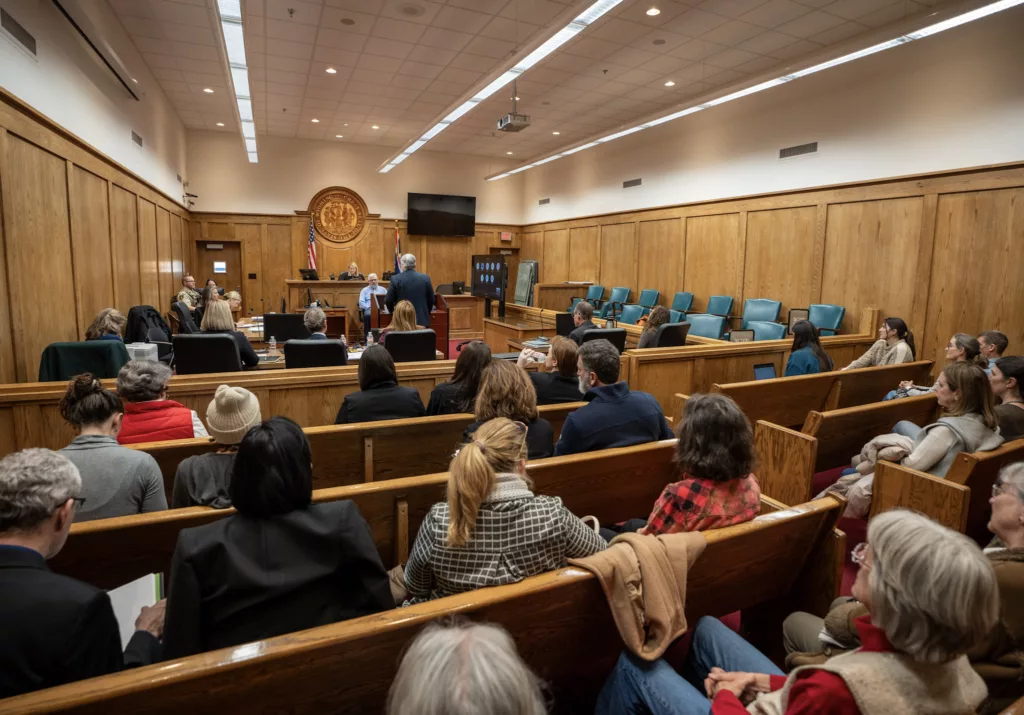
About 25 people — the majority women — fill the courtroom as Special Assistant Attorney General Jay Jerde defends the state’s near-total and medical abortion bans. (Kathryn Ziesig/Jackson Hole News&Guide)
Anthony is one of the state’s only abortion providers and says the bans have real world impacts. After Thursday’s hearing, she said people have been coming from states as far as Texas to access this kind of care. And she said, earlier that day, she terminated a patient’s pregnancy.
“It affects real people, and it affects women and reproductive age women every single day,” Anthony said. “We’re going down the right road and fighting for our patients rights.”
But, the state has argued it’s also fighting for the rights of “unborn babies,” driven by the belief that life begins at conception.
“[Lawmakers have] crafted statutes that protect the rights of both pregnant women and unborn babies,” said Special Assistant Attorney General Jay Jerde, who didn’t respond to a request for comment after the hearing.
While plaintiffs raised a number of ways they say the bans violate the state’s constitution, a lot of the debate revolved around one key question:
Is abortion healthcare?
The state’s constitution gives Wyomingites the right to make their own healthcare decisions.
Anthony and other advocates argued that abortion is an essential medical need, so it should be protected under the constitution.
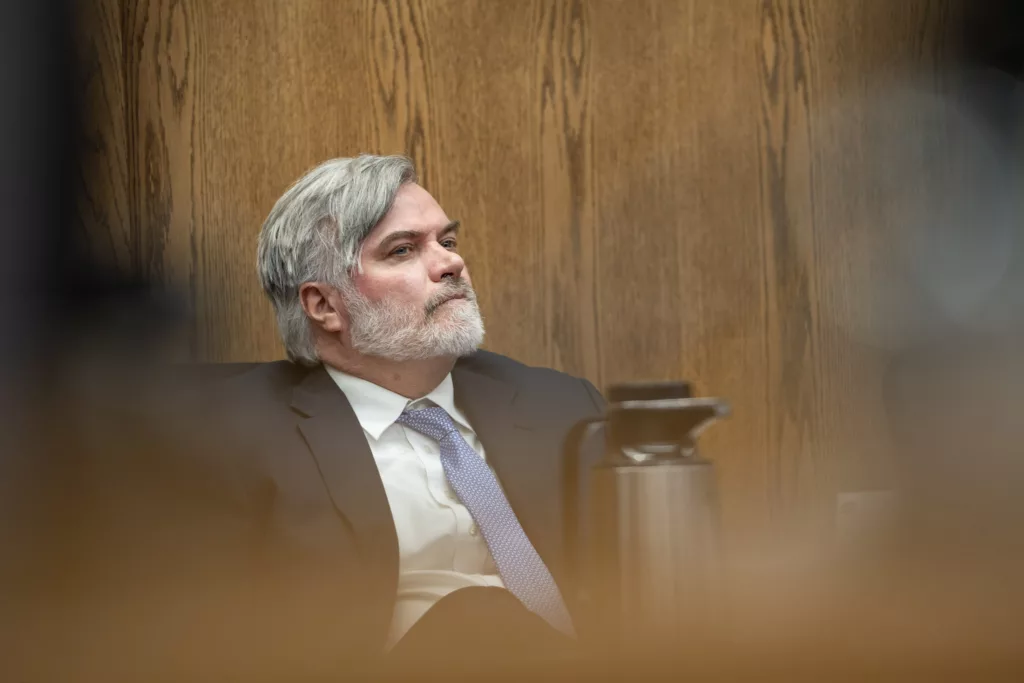
Jay Jerde, special assistant attorney general for the state, listens as the plaintiffs’ attorneys address 9th Judicial District Court Judge Melissa Owens during a summary judgment hearing Thursday in Teton County District Court. (Kathryn Ziesig/Jackson Hole News&Guide)
But, according to the state’s defense team, lawmakers have the ability to regulate what is and isn’t healthcare. In the near-total abortion ban they passed earlier this year, called the Life is a Human Right Act, lawmakers explicitly defined abortion as “not healthcare.”
But Owens, the judge, questioned that move.
“Isn’t that just an end run around for the legislature to make a constitutional amendment without the voters?” she asked.
Jerde argued that the legislature has the right to define what’s in the constitution — including healthcare.
“When the abortion is done for reasons not related to the health of the pregnant woman, it isn’t health care,” he argued.
The law — along with one specifically prohibiting abortions through pills — allows people to terminate their pregnancies in cases of sexual assault and incest. It also states that physicians may exercise “reasonable medical judgment to prevent the death of a pregnant woman,” granted they make every effort to also preserve the life of the fetus.
But plaintiffs argued these exemptions aren’t broad enough to save the lives of pregnant people and that they put doctors in an impossible position, tasked with guessing when abortions are legal.
If they guess wrong, they could end up in jail for up to five years, or have to pay a fine of up to $20,000, or both.
“They will force doctors to violate the medical standard of care,” argued one of the plaintiff’s lawyers, Peter Modlin, who said the laws would also harm women and fetuses.
And, the reason the state passed the laws, according to Modlin? Religion.
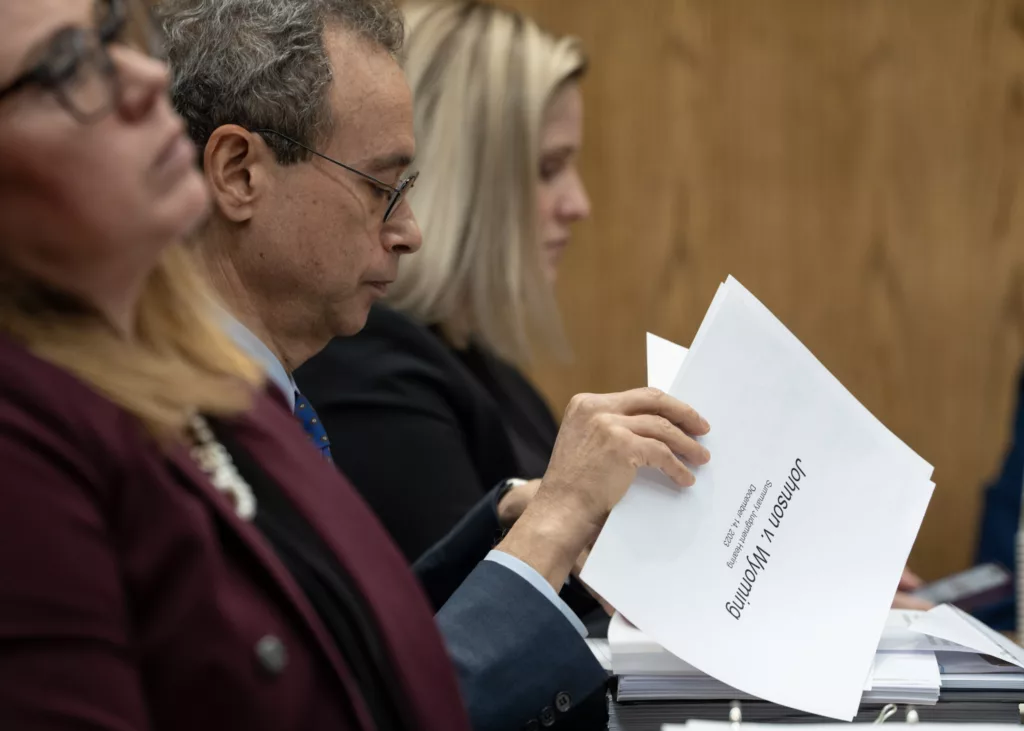
Plaintiffs’ attorney Peter Modlin looks through the printout of his powerpoint presentation during a summary judgment hearing Thursday in Teton County District Court. (Kathryn Ziesig/Jackson Hole News&Guide)
Are the laws religiously motivated?
One of the plaintiffs, Kathleen Dow, is a Conservative Jew and has said she believes life begins at childbirth, not conception. Modlin argued the statutes violate her religious liberties by imposing sectarian beliefs.
“It’s about the legislature imposing one religious viewpoint on all citizens of Wyoming, even if they don’t share that viewpoint,” he said.
But Jerde, with the state, argued that the statutes are just a return to the state’s policy from 1869. Abortion was illegal before Roe v. Wade, he explained.
“It’s a traditionalist view of abortion — it’s not related to religion at all,” Jerde said. “That has always been the case in Wyoming.”
A recent University of Wyoming survey found that 7 percent of polled residents say they want abortion to be banned altogether, and 36 percent only accept abortion in cases of rape, incest or threats to the life of a women.
Another 36 percent said they view abortion as a matter of personal choice, and 19 percent said they accept abortion if other reasons are clearly established.
What’s next?
Unlike previous hearings, Judge Owens decided to not rule from the bench on Thursday.
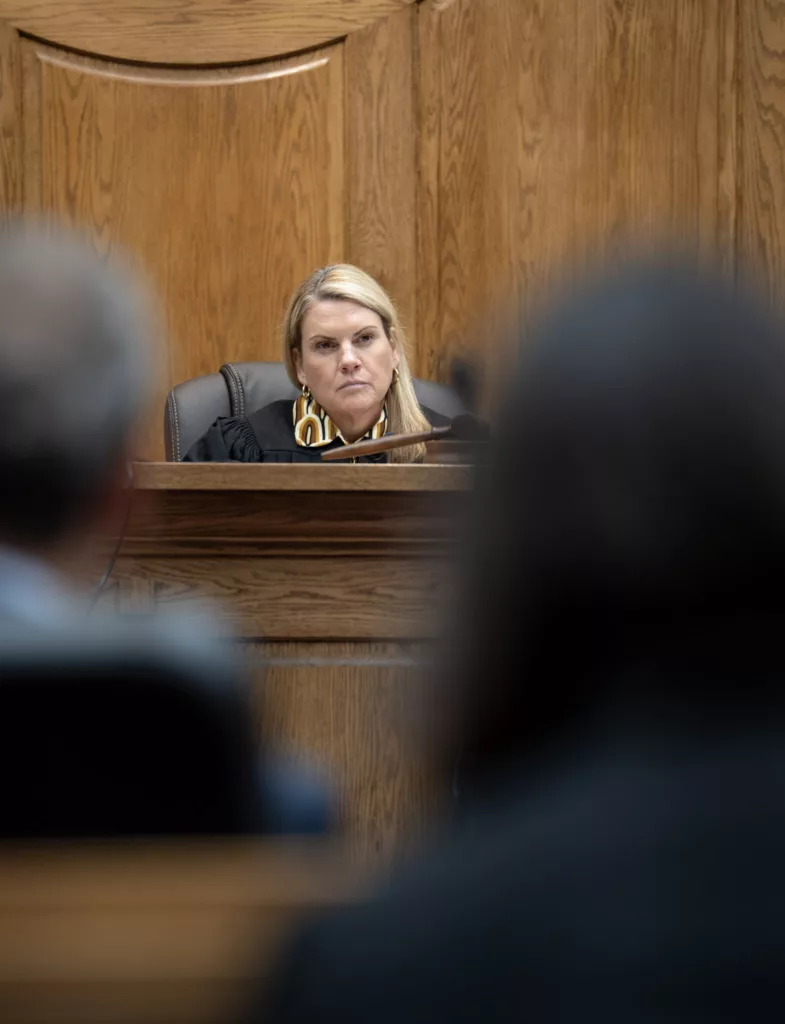
Judge Melissa Owens listens to arguments at the Thursday hearing. She could either issue a ruling on the case or let it go to trial. (Kathryn Ziesig/Jackson Hole News&Guide)
“Based on the hours of oral argument and the complex constitutional issues before this court, there’s no way that I would be ruling from the bench today,” said Owens, who could ultimately rule on the case or send it to trial in the spring.
The state’s defense team still needs to produce certain transcripts, and Jerde said that would take a minimum of six weeks.
In the hearing’s final minutes, Owens said she’s concerned about having a good factual record in the case, which is likely to be appealed to the Wyoming Supreme Court.
The state’s highest court previously denied taking on the case, citing a “limited factual record.”
The state supreme court is also currently deciding whether two Republican state lawmakers and anti-abortion access group Wyoming Right to Life can weigh in on the case.
If the justices allow them to join, a final decision on the future of reproductive rights in the state could be pushed further down the line.
Marti Halverson, who leads the right to life group, said she also “wouldn’t be surprised” if lawmakers introduce more bills early next year restricting access.
In the meantime, abortion remains legal in Wyoming.

